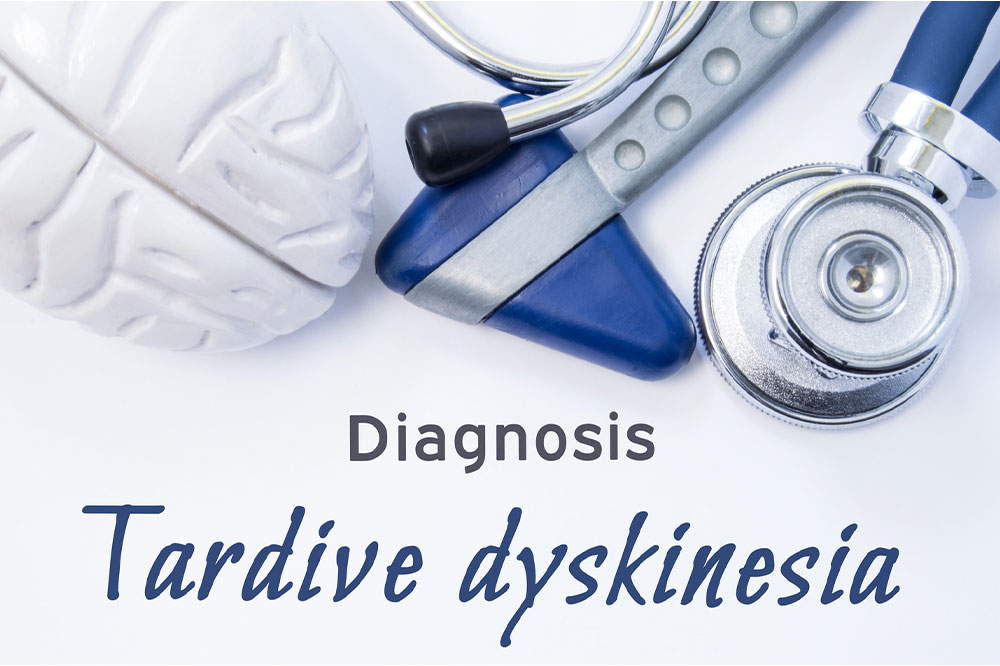
Tardive dyskinesia – 3 top ways to manage the condition
Tardive Dyskinesia (TD) is an involuntary neurological movement disorder that occurs due to the use of dopamine receptor blocking treatment options that are prescribed for a few gastrointestinal or psychiatric conditions. It is characterized by abnormal and involuntary movements of the tongue, lips, and jaw. People with this condition cannot control their facial activities, leading to anxiety and stress. Detailed below are some treatment options, meal plans, and ways to manage the condition well:
Treatment options
If one is taking some treatment option that can cause tardive dyskinesia, the health care expert should be alerted in case symptoms develop. The doctor will then recommend specific tests to rule out other diseases or illnesses such as Parkinson’s disease. Some of the tests that could be conducted are:
- Physical exam to check the nervous system function
- Blood tests and urine tests to check for illnesses, infections, and other such problems
- EEG (Electroencephalogram) to measure the electrical activity in the brain
- EMG (Electromyography) to measure the communication between nerves and muscles.
Based on the diagnosis, the health care provider may reduce the dosage of the specific treatment option.
Ingrezza
It works as a vesicular monoamine transporter 2 inhibitor. This treatment option is FDA approved for adults with uncontrollable movements of TD. It reduces the dopamine (a chemical in the brain that helps control actions) signaling. Ingrezza is taken once a day, with or without food, as suggested by the health care expert. Avoid taking it if you are allergic to any of its ingredients, as it may cause severe side effects, including sleepiness and heart rhythm problems. Talk to the healthcare expert if these symptoms prevail.
Deutetrabenazine
This FDA-approved treatment option is a reversible inhibitor of vesicular monoamine transporter type 2. A randomized controlled trial of deutetrabenazine for this condition indicated that it is efficient for treating abnormal and uncontrollable movements in people with TD, with a favorable safety and tolerability profile.
Foods to eat and avoid
Uncontrolled movements caused by tardive dyskinesia (TD) can make eating difficult. In such situations, the health care provider suggests:
Soft foods
Liquid or semi-liquid foods such as soups and foods that are soft and easy to eat, like bananas, oranges, can be a part of the meal plan. Most often, patients with this condition would need their food to be pureed.
High fiber foods
Fresh vegetables and whole grains might be useful as the treatment options, and inactivity caused due to this condition can result in constipation.
Besides following the healthy meal plans, it is recommended to follow the below-mentioned tips:
- Do not include too many fatty foods in the meals
- Avoid overeating and eat a small amount of food with each meal to avoid the risk of choking
- Avoid the heat treatment of the products by frying
- Make a meal regime and organize and plan the regularity of the food intake
- The primary focus is fresh vegetables, herbs, fruits, and berries
- It is required not to include animal fats and fatty foods
- Fried, pickled, spicy foods should also be avoided
- Including simple carbohydrates such as tea with sugar and dry biscuits should also be avoided
You might need to consult a doctor about taking supplements to ensure that your body is getting all the essential nutrients it needs.
Tips for managing TD
The condition can have an impact on physical and emotional well-being, causing the affected person to feel lonely, isolated, and depressed. But, with specific lifestyle changes and ways mentioned below, one might be able to cope a bit better. Some beneficial ways to manage the condition are:
Consult a health care expert
It is necessary to work with the doctor to adjust the treatment options that may cause this disease. TD can get better under the doctor’s guidance and care. One may also consult a health care professional to learn how to manage this condition’s physical and emotional effects.
Regular exercise
One may feel better physically and mentally when exercising regularly and walking. A study hypothesized that the natural experience could help reduce anxiety and boost mood. Swimming is also helpful.
Join a support group
A TD support group is where people with this health condition can discuss their experiences and learn or gain knowledge from each other. Sometimes these groups are present at community centers or hospitals. These groups could help one know more about the condition, symptoms, and challenges through the experiences of others.
Some other tips or ways that help manage this condition are listed below:
- Prioritize rest and invest in some good bedtime habits. Also, it isn’t easy to control movements when one is tired.
- Try to give oneself a break when feeling nervous or in a stressful situation.
- Gain knowledge and educate oneself from reliable resources about the symptoms, causes, and treatment options available for the disorder or illness.
- Do not overestimate the condition. Don’t feel embarrassed about the movements caused by the disease.
TD is a side effect of the treatment options prescribed for certain gastrointestinal or psychiatric conditions. It causes uncontrolled movements of the face and body, which may impact a person’s physical and emotional health. Many people may get relief by changing or reducing the particular treatment option under the supervision of a health care expert. Also, ask for support and help from loved ones, friends, and family members.


